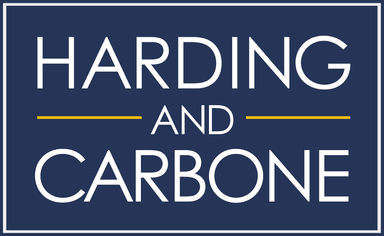
Texas Property Tax Relief Programs: A Homeowner’s Guide
October 6, 2025
Key Takeaways:
- Eligibility: Relief programs extend to primary homeowners, seniors, veterans, and agricultural or timberland owners.
- Application: Filing deadlines, accurate documentation, and appraisal district communication are key to securing exemptions.
- Strategy: Protests, exemptions, and special valuations can all work together to meaningfully lower annual property tax bills.
Property taxes in Texas can feel like a heavy financial weight for homeowners, especially as property values rise year after year. While these taxes fund essential services like schools, roads, and public safety, many homeowners struggle to keep up with increasing bills. Fortunately, the state provides several relief options that can help reduce costs without sacrificing the benefits those taxes provide. Understanding these programs is the first step toward taking control of your property expenses and making sure you’re paying only what’s fair.
At Harding & Carbone, we’ve dedicated more than 50 years to helping Texans lower their property tax burdens. With offices across the state and a track record of success for thousands of clients, we bring unmatched experience to every case we handle. Our team is built on deep knowledge of Texas property tax law, strong local relationships, and a results-driven approach that has secured millions of dollars in savings for homeowners just like you.
Who Qualifies For Property Tax Relief In Texas
Understanding who qualifies for property tax relief is an important first step for homeowners seeking to reduce their annual tax bills. In Texas, several categories of property owners may be eligible for valuable exemptions and special programs designed to ease the burden of rising property taxes.
Homestead Exemptions
The homestead exemption is the most common form of property tax relief in Texas, available to homeowners who live in their property as of January 1 of the tax year. By lowering the taxable value of a primary residence, it helps reduce annual property tax bills.
Over-65 Or Disabled Exemptions
Homeowners aged 65 or older, or those with qualifying disabilities, can receive additional exemptions beyond the standard homestead. These benefits ease financial pressures by further reducing taxable property values.

Veterans’ Exemptions
Disabled veterans may qualify for significant property tax relief, with exemption amounts tied to their disability rating. In some cases, surviving spouses and children can also continue receiving these benefits.
Agricultural And Timberland Valuations
Land used for agricultural or timber production can be taxed based on its productive value rather than its market value. This special valuation method can substantially reduce property taxes for eligible landowners.
The Homestead Exemption Explained
For many Texans, the homestead exemption is the cornerstone of property tax relief. It reduces the taxable value of a primary residence, giving homeowners meaningful savings on their annual tax bills. To make the most of this benefit, it’s important to understand the types of exemptions available and how to apply:
General Residence Homestead Exemption
This exemption lowers the assessed value of a primary residence, cutting down the annual tax burden. It is available to homeowners who occupy their property as of January 1 of the tax year.
Over-65 And Disabled Exemptions
Homeowners who are 65 or older, or who have a qualifying disability, can receive added relief beyond the standard exemption. These programs are designed to lessen financial strain during retirement or when facing health-related challenges.

Surviving Spouse Of A Disabled Veteran
If a disabled veteran who qualified for an exemption passes away, their surviving spouse may continue receiving benefits. To qualify, the spouse must maintain the home as their primary residence.
Application Process
To claim the exemption, homeowners must submit an application between January 1 and April 30 of the tax year. Proof of ownership and residency, such as a Texas driver’s license with a matching property address, is typically required.
How To Apply For Texas Property Tax Exemptions
Applying for property tax exemptions in Texas involves several important steps, but the process can lead to significant savings when done correctly.
Identify Eligible Exemptions
The first step is determining which exemptions apply to your situation. Common exemptions include the general homestead exemption, the over-65 or disability exemption, and exemptions for veterans with service-connected disabilities. Landowners using their property for agricultural or timber production may also qualify for special valuations.
Prepare Documentation
Before submitting your application, gather the necessary documents. This usually includes a valid form of identification that reflects the property’s address, proof of age or disability if applicable, and for veterans, official paperwork confirming disability status.

Complete And Submit The Application
Each exemption requires a specific application form, available from your county appraisal district. The application should be filled out carefully and submitted along with the required documentation. Deadlines vary, but most exemptions must be filed no later than April 30 of the tax year.
Monitor The Process
After submission, follow up with your appraisal district to confirm that your application is being processed. Processing times can differ by county, so staying engaged helps avoid unnecessary delays.
Learn more about the wide range of property tax services we offer to help homeowners and businesses reduce their tax burden. Our approach is built on expertise, accuracy, and proven results.
How Texas Tax Relief Can Help Lower Your Property Tax
For many Texans, property taxes represent one of the largest recurring household expenses. Relief programs and strategies can make a significant difference by reducing the taxable value of a home or by challenging inaccurate assessments.
Review Your Property Assessment
Each year, county appraisal districts determine the market value of properties, which directly influences the amount of tax owed. If your property is assessed at a higher value than its true market worth, you may be paying more than necessary. Understanding your appraisal is the first step in spotting potential savings.
File a Protest When Necessary
Homeowners have the right to formally dispute their property’s appraised value. A successful protest can lower the taxable value and, in turn, reduce the tax bill. Evidence such as recent sales of comparable homes or documentation of property conditions can strengthen your case.
Leverage Available Exemptions
Exemptions, particularly the homestead exemption, are a powerful tool for lowering taxable values. Seniors, disabled homeowners, and veterans may be entitled to additional exemptions that further decrease annual obligations.
Consider Payment Options
In certain counties, payment plan options are available to spread tax bills across the year. While this does not reduce the total tax owed, it can help ease financial strain by breaking payments into smaller installments.
Stay informed about property tax relief programs and how they could apply to your home by visiting Harding & Carbone. With decades of experience, we provide insight into navigating exemptions and protests effectively.
Final Thoughts
Property tax relief in Texas comes in many forms, from exemptions that reduce the taxable value of a home to special programs for seniors, veterans, and landowners. Understanding these opportunities and taking the time to apply for them can result in substantial long-term savings.
At Harding & Carbone, we’ve built our practice around helping property owners navigate the challenges of rising taxes and complex appraisal processes. With decades of experience and a dedicated team, we provide the insight and support needed to secure fair valuations and take advantage of every available tax relief option.
For homeowners, securing tax relief isn’t just about lowering costs this year, it’s about protecting your financial stability for years to come. If you’re ready to take the next step in managing your property taxes, connect with our team through the contact page. We’re here to provide guidance and answer any questions you may have.
Read Also:
- How To Manage Property Taxes In Harris County
- Fort Bend County Taxes: Essential Facts And Payment Steps
- Brazoria County Taxes: A Guide To Rates, Exemptions, And Due Dates
Frequently Asked Questions About Texas Property Tax Relief
What is the difference between an exemption and a deferral in Texas property taxes?
An exemption reduces the taxable value of your property, which lowers the total amount you owe each year. A deferral, on the other hand, allows eligible homeowners to postpone paying their property taxes, though the taxes will eventually need to be paid, often with interest.
Can rental property owners qualify for property tax relief in Texas?
Most exemptions are limited to primary residences, meaning landlords generally do not qualify. However, rental property owners may still benefit from filing a protest to challenge an overvalued appraisal and potentially reduce their property taxes.
Are property tax relief benefits permanent once approved?
Some exemptions, such as the general homestead exemption, automatically renew each year as long as the homeowner continues to live in the property. Other exemptions, particularly those tied to disability or veteran status, may require updated documentation to remain valid.
Do Texas counties offer local relief programs beyond state exemptions?
Yes, in addition to statewide exemptions, some counties and cities provide their own relief options. These local programs can vary, so it’s important to check with your county appraisal district for opportunities specific to your area.
Can property tax relief apply to manufactured or mobile homes?
Manufactured or mobile homes can qualify if they are the homeowner’s principal residence and properly documented with ownership records. The key factor is that the home must serve as the owner’s primary residence for the tax year.
Is there a limit to how much property taxes can increase in Texas?
Yes, homestead properties are capped at a 10% increase in appraised value each year, plus the value of any new improvements. This cap helps protect homeowners from sudden and steep increases in property taxes.
Can surviving spouses of homeowners receive property tax relief?
In many cases, surviving spouses are eligible to continue receiving exemptions if they remain in the same home. This applies to spouses of qualified veterans, seniors, or disabled homeowners who had previously claimed the exemption.
Are businesses eligible for property tax relief in Texas?
Businesses do not qualify for the same exemptions as homeowners, but they may have access to abatements, protests, or valuation adjustments. These opportunities can reduce the taxable value of commercial properties and lower tax bills.
Can property tax relief reduce school district taxes in Texas?
Yes, seniors and disabled homeowners can benefit from a “tax ceiling” that freezes school district taxes at the level paid when the exemption was first granted. Even if the property’s value increases, the school tax will not go up.
How soon after buying a home can a new owner apply for tax relief?
New homeowners can apply for a homestead exemption starting January 1 of the year after the home is purchased. As long as it is their principal residence, they can file the exemption with their county appraisal district during the application period.
